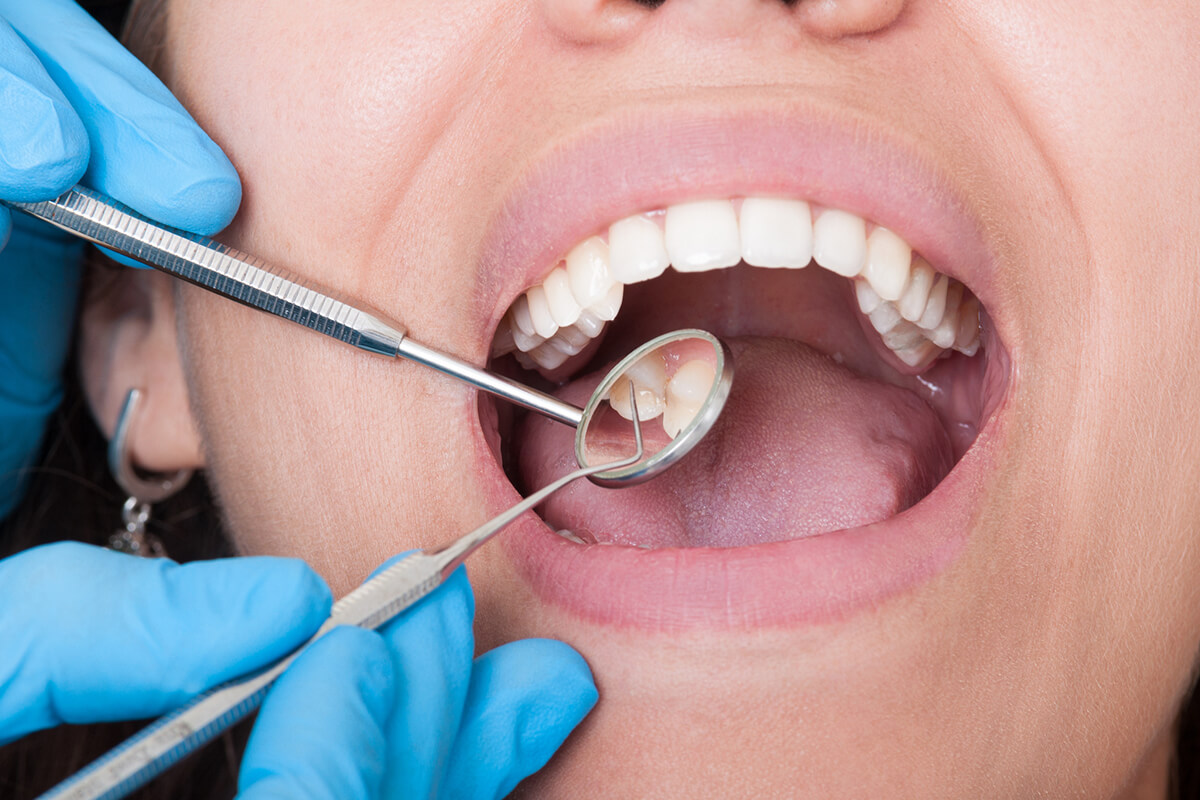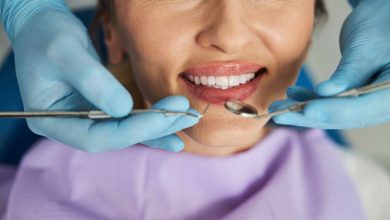How Long is a Dental Cleaning?

A dental cleaning typically lasts about 30 to 60 minutes. During this time, a dental hygienist will remove plaque and tartar from your teeth, as well as polish and floss them for a thorough cleaning.
Taking care of your teeth and gums is essential for maintaining good oral health. One important aspect of oral hygiene is regular dental cleanings. But how long does a dental cleaning actually take? We’ll discuss the duration of a dental cleaning and what you can expect during the process.
Whether you’ve been putting off your dental cleaning or you’re just curious, read on to find out more.
What Is A Dental Cleaning?
A dental cleaning is a preventive procedure that involves the removal of plaque, tartar, and stains from the teeth. It is an essential part of maintaining oral health and preventing dental diseases such as cavities and gum disease. The cleaning is usually performed by a dental hygienist or dentist, using specialized tools like scalers and polishers. During the cleaning, the dental professional will thoroughly clean the surfaces of the teeth, including in between the teeth and along the gumline. They will also evaluate the overall oral health and provide recommendations for proper oral hygiene care at home. A dental cleaning typically takes around 30 minutes to an hour, depending on the individual’s oral health condition. It is recommended to get a dental cleaning every six months to keep the teeth and gums healthy.
How Long Does A Dental Cleaning Usually Take?
A dental cleaning usually takes an average of 30 minutes to 1 hour. The duration may vary depending on several factors.
| Factors | Impact on Cleaning Time |
|---|---|
| Oral Health | A patient with good oral health may require less cleaning time compared to someone with extensive dental issues. |
| Presence of Tartar and Plaque | If there is a significant buildup of tartar and plaque, it may require additional time for thorough cleaning. |
| Difficulty of Stain Removal | Stubborn stains may require extra time and effort to remove, thus prolonging the cleaning process. |
| Gum Disease | Patients with gum disease may need additional cleaning procedures, resulting in a longer overall duration. |
| Cooperation of the Patient | A patient with good cooperation, who follows instructions and remains still during the procedure, can expedite the cleaning process. |
It’s essential to note that these factors can impact the cleaning time; therefore, the duration may vary from person to person. Your dentist will assess these factors during the cleaning process to determine the necessary time for a thorough and effective cleaning.
Benefits Of Regular Dental Cleanings
Regular dental cleanings are essential for maintaining optimal oral health and preventing dental issues. These cleanings, performed by a dental professional, typically last between 30 minutes to an hour, although the exact duration can vary depending on individual needs. By removing plaque and tartar buildup, dental cleanings play a crucial role in oral health. Plaque is a sticky film that forms on teeth and harbors bacteria, which can lead to tooth decay and gum disease if not consistently removed. Tartar, on the other hand, is hardened plaque that can only be removed by professional cleaning.
Preventing tooth decay and gum disease is another significant benefit of regular dental cleanings. These cleanings allow the dentist to thoroughly examine teeth and gums, identifying any signs of potential problems. Early detection can help prevent issues from progressing and becoming more serious. Additionally, cleanings often involve polishing teeth, leaving a smooth surface that makes it more difficult for plaque and stains to build up. Maintaining good oral hygiene habits and regularly scheduling dental cleanings can contribute to a healthy mouth and a confident smile.
Additional Procedures During A Dental Cleaning
A dental cleaning typically lasts between 30 minutes to an hour, depending on the individual’s oral health. During the cleaning process, the dental hygienist will thoroughly examine the teeth and gums to identify any signs of dental issues such as cavities, gum disease, or infections. This examination helps in creating a comprehensive dental treatment plan for the patient.
X-ray evaluation and analysis may also be conducted to assess the hidden areas of dental health. X-rays provide valuable insights into the condition of the teeth, roots, and jawbone, aiding in the detection of any underlying problems that may not be visible through a visual inspection alone.
Additionally, a fluoride treatment may be applied to strengthen the teeth and prevent tooth decay. Fluoride helps in remineralizing the enamel, making it more resistant to acids and plaque formation.
Based on the dental examination and x-ray evaluation, the dental professional may recommend further treatments or dental work, such as fillings, root canals, or periodontal therapy, if necessary. These recommendations are made to ensure the overall oral health of the patient.
Is Dental Cleaning Painful?
Many people wonder about the length of time required for a dental cleaning. It is important to note that the duration of a dental cleaning can vary depending on various factors, such as the individual’s oral health condition and specific needs. While some cleanings may take around 30 minutes to an hour, others may require multiple visits.
When it comes to the discomfort experienced during a dental cleaning, it is important to address common misconceptions. Some people believe that dental cleanings are painful, but in reality, they are usually not. While minimal discomfort might be experienced, it is generally manageable and temporary.
If you do experience any discomfort during the cleaning, there are methods to help manage it. Dentists often use numbing gels or local anesthesia to help minimize any potential pain. Additionally, communicating any concerns or sensitivity to the dentist before the cleaning can help ensure a more comfortable experience.
How Often Should You Get A Dental Cleaning?
htmlA dental cleaning is an essential part of maintaining good oral health, but the frequency at which you should get one can vary. The American Dental Association recommends that most individuals get a dental cleaning every six months. However, some individuals may require more frequent cleanings based on their specific dental needs. Factors that may affect the frequency of cleanings include your oral hygiene habits, the presence of gum disease or other oral health conditions, and your overall health. It is important to consult with your dentist to determine the appropriate frequency for your dental cleanings.
Individualized dental care plans are crucial in maintaining optimal oral health. These plans take into consideration your specific dental needs and goals. Your dentist will work with you to develop a personalized plan that includes the recommended frequency of dental cleanings, as well as other preventive and treatment measures. Regular dental cleanings not only help to remove plaque and tartar buildup, but they also allow your dentist to detect any potential problems early on. By following your individualized dental care plan, you can ensure that you are receiving the necessary care to maintain a healthy smile.

Credit: www.drjamrozek.com
Frequently Asked Questions Of How Long Is A Dental Cleaning?
How Long Does A Dental Cleaning Go?
A dental cleaning typically lasts for about 30 to 60 minutes.
How Long After Teeth Cleaning Can I Eat?
You can eat immediately after teeth cleaning, but it’s recommended to wait for about 30 minutes. This allows your mouth to recover and protects your teeth from potential damage. Enjoy your meal!
What Should I Expect From A Dental Cleaning?
During a dental cleaning, you can expect a thorough examination of your teeth and gums, removal of plaque and tartar, polishing to remove surface stains, and flossing. Your dentist or hygienist will also discuss oral hygiene practices and provide personalized recommendations for maintaining your oral health.
Is It Painful To Get Teeth Cleaned?
Teeth cleaning is generally not painful. Dentists use specialized tools to remove plaque and tartar, which may cause slight discomfort or sensitivity. However, numbing agents and gentle techniques are available to minimize any potential discomfort during the process.
Conclusion
A dental cleaning generally lasts around 30 to 60 minutes, depending on the individual’s oral health and specific needs. These appointments are crucial for maintaining good oral hygiene and preventing dental problems. Regular cleanings help remove plaque, tartar, and surface stains, promoting a healthy, confident smile.
It is recommended to schedule dental cleanings every six months to ensure optimal oral health. Remember, prevention is always better than cure when it comes to oral care.





